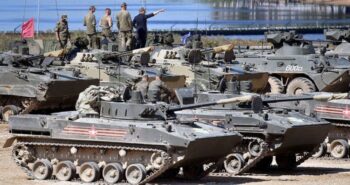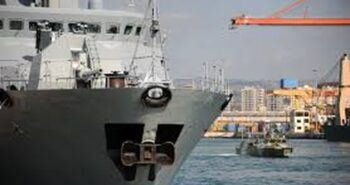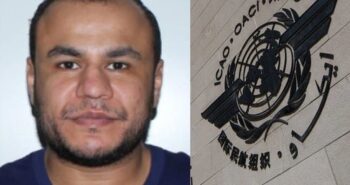By Adam Ereli
 Since the outbreak of the Arab Spring 10 years ago, the Middle East has witnessed a bleak cascade of unrest. Catastrophic civil conflict has beset Syria, Yemen and Libya.
Since the outbreak of the Arab Spring 10 years ago, the Middle East has witnessed a bleak cascade of unrest. Catastrophic civil conflict has beset Syria, Yemen and Libya.
Lebanon has become for all intents and purposes a failed state. Only the most draconian authoritarian repression keeps the lid on revolutions in Egypt and Iran.
Optimism is understandably in short supply, and yet a glimmer of light has emerged recently in Libya.
On Sept. 18, two of Libya’s rival governments — the internationally-recognized Government of National Accord (GNA) in Tripoli and Field Marshal Khalifa al Haftar’s Libyan National Army (LNA), affiliated with the Tobruk-based House of Representatives (HOR) — achieved a limited but promising agreement to resume oil exports.
According to the deal announced by the GNA’s Deputy Prime Minister Ahmed Maiteeq and Mr. Haftar’s representatives, the Libyan warlord and his allied tribes are lifting their blockade on the country’s oil ports, which has allowed Libya to resume oil exports. Moreover, the parties agreed to create a “technical commission,” which is intended to ensure the “equitable distribution” of oil revenues.
Libya has seen more than its fair share of false starts and failed agreements in the past. A healthy degree of skepticism regarding this latest compromise is therefore warranted. Key details such as the term of the agreement, the composition of the technical commission or the precise apportionment of the oil revenues remain to be ironed out.
Moreover, many of the underlying factors that have frustrated previous attempts to bridge differences still obtain: Mr. Haftar’s volatility and unreliability, the GNA’s internal divisions, Libya’s maddeningly complex mosaic of unruly tribes, militias, and the competing interests of outside powers, including the U.S., Turkey, UAE, Egypt, Russia and others.
Nevertheless, despite these very real obstacles and limitations, September’s breakthrough offers reason for cautious optimism.
Over the past three months, the warring parties have proved willing to negotiate with one another and have demonstrated the ability to compromise. In August, the GNA and HOR agreed to a cease-fire, which paved the way for the agreement on resuming oil exports.
Key to facilitating this peace-making and building on their momentum is a dynamic international diplomatic effort that is showing real signs of progress. Talks hosted by Morocco in Bouznika, the U.N. in Geneva and Egypt in Cairo have produced tangible progress in addressing the all-important issue of power sharing. And behind the scenes, the United States is providing strong political support to the negotiators.
Most significantly, Libya’s leaders are stepping up and showing signs of statesmanship. It has become a truism that any resolution of the country’s long-running civil conflict must be “Made in Libya.” This means putting aside factional differences, acknowledging the needs of one’s adversaries and acting in the best interests of the nation. Fayez al-Sarraj, the GNA’s prime minister, announced that he will resign at the end of October to make way for new leadership. Similar moves are underway within the eastern leadership. Waiting impatiently in the wings are a host of personalities ready to explore new approaches.
One of them is an architect of the September oil agreement, Deputy GNA Prime Minister Ahmed al Maiteeq. Mr. Maiteeq is a successful businessman from the all-important Misrata faction of Libyan politics, known for his moderate liberalism. His success in producing compromise has solidified his credentials as someone who can get the support of factions within Libya and international community.
In speaking about the pressing issues facing his country and the factors that contributed to the latest deal on oil, Mr. Maiteeq told me: “The Libyan parties, with the support of the United Nations mission, concluded that the solution to the conflict in Libya should be political, not military. And that is why with this agreement both sides responded to the calls of Libya’s citizens and met the needs of each side in a way that serves all.”
Mr. Maiteeq’s comments underscore several brutal realties. Military force and money are the keys to power in Libya. Turkey’s supply of heavy weapons in support of the GNA inflicted serious losses on Mr. Haftar’s forces and his proxies, forcing them to retreat from Tripoli and to agree to a cease-fire. Widespread social unrest throughout the country has driven home to Libya’s leaders across the political spectrum that their futures are inextricably linked to an ability to provide for the needs of their citizens.
There is obviously no shortage of pitfalls that could derail the progress we have seen over the past few months. But in addition to the concerted international effort supporting the recent peacemaking, Libya has something that the region’s other intractable conflicts lack: exhaustion on all sides within the country and a willingness to compromise. Momentum, for now, would appear to be in their favor.
***
Adam Ereli is founder and principal of Iberoamerican Consulting Corporation, a strategic advisory firm based in Washington. He served as a diplomat in the Middle East for 24 years and was U.S. ambassador to Bahrain from 2007 to 2011 and deputy State Department spokesperson from 2003-2006.
__________




